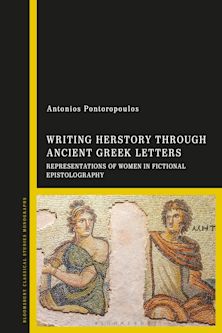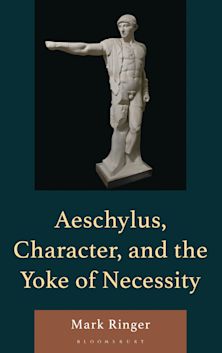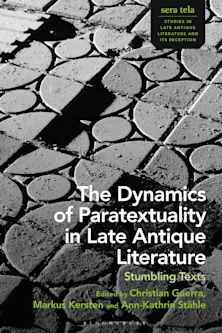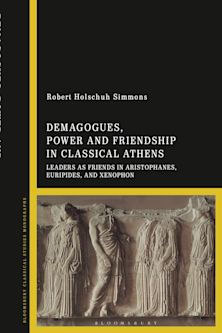- Home
- ACADEMIC
- Classical Studies
- Ancient Greek Literature
- Xenophon’s Other Voice
Xenophon’s Other Voice
Irony as Social Criticism in the 4th Century BCE
Xenophon’s Other Voice
Irony as Social Criticism in the 4th Century BCE
You must sign in to add this item to your wishlist. Please sign in or create an account
Description
This volume explores irony – in its essence, saying other than one actually means – in the collected works of Xenophon. Xenophon's Other Voice argues that there are two voices in the author: one ostensible at the level of the literal text, which is available to everyone, while the sub-title designates the other voice, which is less obvious to the reader and indeed, an ironic one. It presents a unified view of the author's entire corpus and argues that the function of Xenophontic irony is to offer critiques of the societies in which he finds himself.
Rejecting both non-ironic and Straussian interpretations of Xenophon's writings, Yun Lee Too offers a wholly original perspective on the contemporary debate of how he should be read, which is underpinned by a series of incisive readings of the individual works. Beginning with Xenophon's representation of an ironic Socrates, who condemns the contemporary city and its more prominent citizens, the book moves on to consider how the author develops his own approach to irony. He deploys irony to criticize aspects of Athenian society, such as its understanding of wealth, its armed forces and sophistic education. The book then turns to his treatment of other Hellenic societies, including the Spartan city-state and laws, kingship in Syracuse and war amongst the Greek states. It finally considers Persia, covering Xenophon's depiction of Cyrus the Great and the expedition with Cyrus the Younger.
Table of Contents
Part I. Socrates on Athens
1. Xenophon's Apology: The Death of Socratic Irony; the Birth of Xenophontic Irony
2. The Memorabilia: Remembering Truth and Lies about Socrates
3. Partying Life (Away) in Xenophon's Symposium
4. The Economies of Pedagogy in the Oeconomicus: Xenophon's Wifely Didactics
Part II. Xenophon on Athens
5. The Critique of the Sophists in On Hunting
6. Xenophon on Equine Culture
7. Xenophon's Poroi or 'Ways and Means'?
Part III. The Rest of Greece
8. Why Xenophon's Hiero Is Not a Socratic Dialogue
9. Spartan Dis-appointments
10. The Hellenica and the Irony of War
Part IV. Persia
11. Xenophon's Cyropaedia: Disfiguring the Pedagogical State
12. Coming Home? The Anabasis as Community
Conclusion
Notes
Bibliography
Index
Product details

| Published | 26 Aug 2021 |
|---|---|
| Format | Ebook (PDF) |
| Edition | 1st |
| Extent | 264 |
| ISBN | 9781350250543 |
| Imprint | Bloomsbury Academic |
| Publisher | Bloomsbury Publishing |
About the contributors
Reviews
-
This is a thought-provoking and original approach to Xenophon. It ranges across the whole of Xenophon's corpus and with remarkable clarity and concision argues that scholars have missed a fundamental aspect of Xenophon's work: their ironic takes on their subject matter.
Timothy Duff, Professor of Classics, University of Reading, UK

ONLINE RESOURCES
Bloomsbury Collections
This book is available on Bloomsbury Collections where your library has access.


































